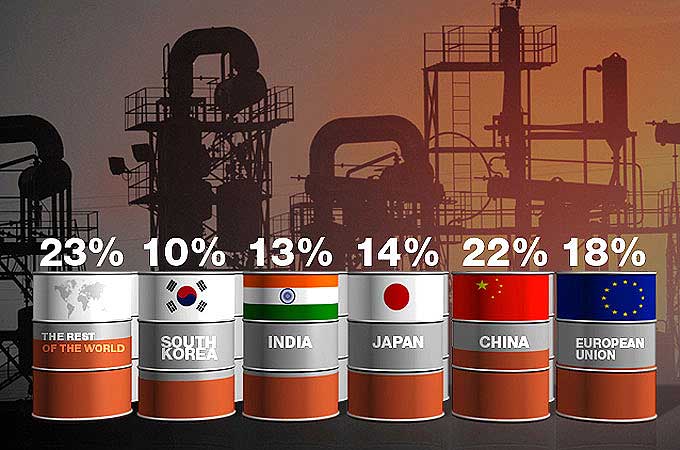Notice: Trying to access array offset on value of type bool in /home3/royalglo/public_html/wp-content/themes/tractor/framework/class-aqua-resizer.php on line 105
Notice: Trying to access array offset on value of type bool in /home3/royalglo/public_html/wp-content/themes/tractor/framework/class-aqua-resizer.php on line 106

Iran Oil Exports Higher Than Expected in 2019
I ranian crude oil exports in January were higher than expected, while February shipments so far have been holding steady or even higher compared to last month, as several of Iran’s customers are using up their US sanction waivers to continue importing Iranian oil.
According to tanker-tracking data from Refinitiv Eikon and a source at a company tracking Iranian oil flows, Iran’s exports in February have averaged 1.25 million barrel per day so far, while the January exports were between 1.1 million bpd and 1.3 million bpd, higher than the previously expected below 1-million-bpd level, which was seen in December, Reuters reported.
While tracking Iran’s oil exports has become an increasingly difficult task after the US sanctions returned in early November, some of the key Iranian oil customers that received US waivers resumed buying Iran’s oil in 2019 or increased imports to their respective ceiling allowed under the waivers.
Iran’s key Asian customers – Japan, South Korea, India, and China – are buying Iranian crude again, but at much lower rates than they did before November when US sanctions kicked in.
The rate at which India, Japan, and South Korea are importing Iranian crude at the moment, is at least half lower than the rate from before the sanctions went into effect.
As the ‘waivers window’ will be shrinking ahead of the end of the 180-day waiver period in early May, buyers could be rushing to buy what they can before April in order to be able to complete transactions before May in case waivers are not extended, according to analysts.
The US has signaled that Iranian customers should not rely on waivers extensions, but the Trump Administration has not yet officially said if it would stop granting waivers.




Recent Comments